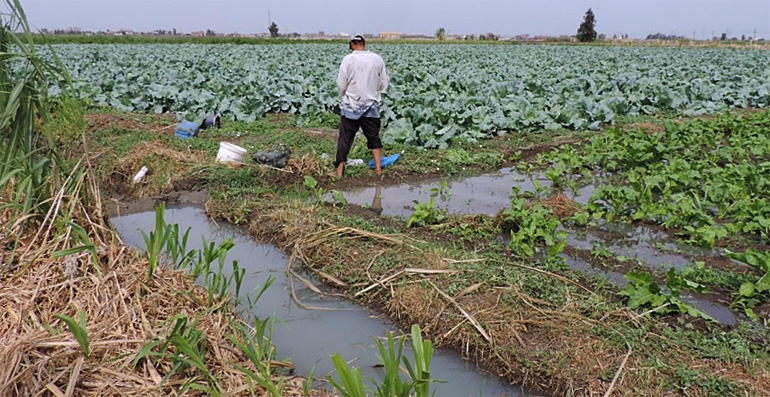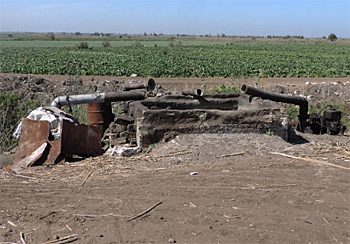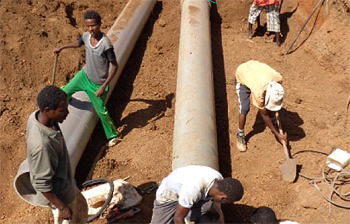First meeting Nile Water Lab provides new entry point for modern irrigation projects
 Water professionals from over 20 countries discussed three modern irrigation projects along the Nile rivers at the first meeting of the Nile Water Lab on 24 November.
Water professionals from over 20 countries discussed three modern irrigation projects along the Nile rivers at the first meeting of the Nile Water Lab on 24 November.
The group also talked about Nile controversies and how policy makers, journalists and civil society engage in the water issues.
During the interactive sessions the participants used a variety of sources including maps, measurements, ethnographic studies and histories.
 Sharecropper Mahoud - on top photo - on the southern bank of the Salam canal, Egypt, is fighting salt intrusion of his water resources.
Sharecropper Mahoud - on top photo - on the southern bank of the Salam canal, Egypt, is fighting salt intrusion of his water resources.
Views from the field
The web-based initiative aims to collect a range of 'views from the field' on irrigation projects along the Nile, together with views that are usually presented only in policy reports or specialist publications.
According to the initiators, all too often this makes information available to decision makers, policy makers, investors and students involved in Nile issues but largely inaccessible to the wider public.
The Nile Water Lab intents to open up these closed spaces and provides new entry points for discussion about the inclusiveness (including gender), equity and sustainability of Nile projects.
At the first meeting engineers, ethnographers, remote sensing experts, web designers who worked with stakeholders in the Salam canal project in Egypt, the Waha irrigation project in Sudan and the Beles irrigation project in Ethiopia.
 In Ethopia remote sensing technology has been validate for the production of sugar and new irrigation systems have been installed.
In Ethopia remote sensing technology has been validate for the production of sugar and new irrigation systems have been installed.
Users perspective
In the overdeveloped Nile basin, improved water planning, management and governance is of increasing importance.
However, it is often difficult to quickly grasp how 'grounded perspectives' and experiences of people relate to the more abstract cost benefit analyses, remote sensing analyses and projections of better futures that governments and development organizations use to promote projects.
The aim of the Nile Water Lab is not to integrate all Nile understanding together in one meta-framework in which all objectives for Nile development can be weighed and optimized.
Optimal use of knowledge
The starting point is that the production and use of this knowledge is never purely objective and always partial. This shifts the focus from how to best represent the Nile waters to optimize their allocation, towards exploring possible alliances between different people who have an interest in collaboration and exploration.
Over the coming months more analysis tools, research publications, education material and case studies will be added to the Nile Water Lab.
The project was funded by CGIAR Water, Land and Ecosystems website by International Water Management Institute (WLE-Nile programme) and by DGIS Unesco-IHE programmatic cooperation (DUPC).
About DUPC
DGIS Unesco-IHE Programmatic Cooperation (DUPC) is the programmatic cooperation between the Dutch Ministry of foreign affairs and Unesco-IHE education centre on water.
By the end of 2014, DUPC funded 103 activities, involving over 85 partner institutes from almost 40 developing countries and countries in transition and around 30 institutes from developed countries, including at least 15 from The Netherlands.
More information
Nile Water Lab
c/o Unesco-IHE
Delft, the Netherlands
+3115 215 18 67
www.nilewaterlab.org
Zadoc Ogutu, focal region manager of CIGAR’s research program on Water, land and ecosystems (WLE) discusses the challenges and highlights of working in the Nile river basin.



